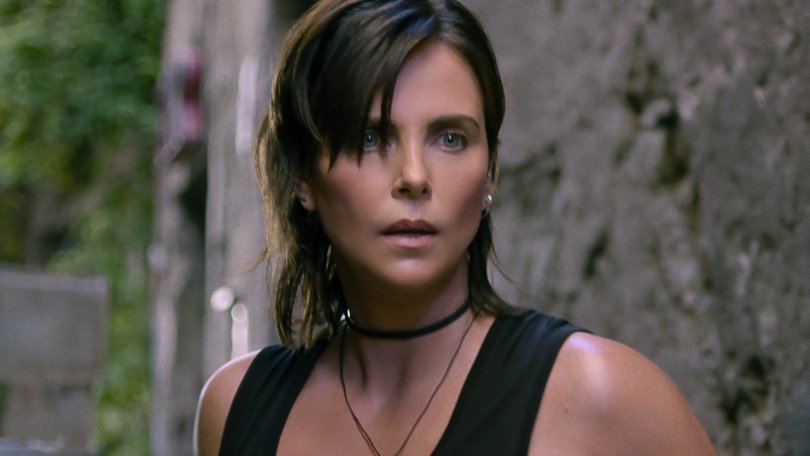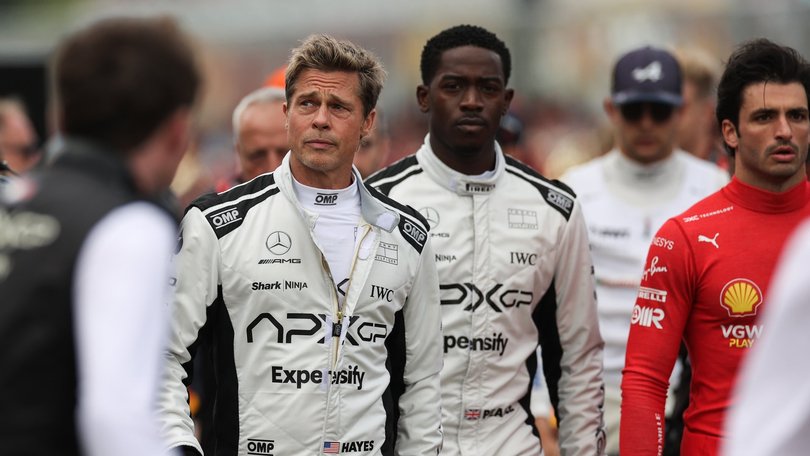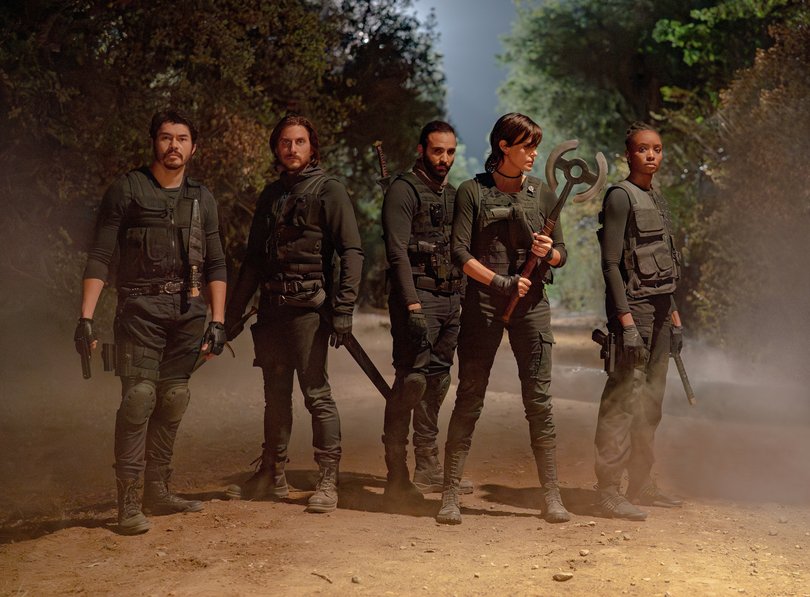Streaming-only movies are not special
The F1 movie, commissioned by a streaming service, is both a cultural moment and a hit thanks to its cinema release. Netflix should take note.

If Ted Sarandos had it his way, no movie would ever be in a cinema again.
Everyone would be at home watching a screen (anywhere between 4 inches and 76) in a brightly lit room, probably without surround sound, maybe by themselves, maybe with a few others, captions on, perhaps at 1.5x speed, while folding laundry or scrolling through Instagram.
If the cinema business collapsed tomorrow, it wouldn’t bother the Netflix boss, he has said, as long as people still made good movies.
Sign up to The Nightly's newsletters.
Get the first look at the digital newspaper, curated daily stories and breaking headlines delivered to your inbox.
By continuing you agree to our Terms and Privacy Policy.But is a good movie still a good movie if it’s not at least first seen inside a cinema? Would Jaws be the cultural sensation it still is, 50 years on, if it had dropped on Netflix without notice?
Here is the tale of three different streaming movies released this week.
The first is F1, the Brad Pitt racing extravaganza. Commissioned by Apple TV+, a streamer, it scored a theatrical release in partnership with Warner Bros.

It had a production budget that has been pegged between $US200 million and $US300 million, and on its opening weekend, brought in $US144 million, which included a very respectable $7.7 million in Australia.
While it has a long way to go before break-even for Apple, which given the budget, marketing spend and sharing the ticket revenue with cinemas, is going to be north of $US800 million, it has a shot at getting close. The reviews have been decent, the audience scores favourable, and it’s aimed at adult viewers, who don’t necessarily rush out that first weekend, so it has legs.
But that’s not F1’s only value. It’s also what people are talking about. With a recognisable movie star in Pitt, a familiar brand proposition in F1, and a marketing team that has “eventised” the film, there is proper buzz.
That’s a halo effect Apple can now claim for its whole brand. Ten years from now, people will still remember the F1 movie.
The studio’s commitment to cinema releases is far from assured. They’ve had four underperform – Napoleon, Killers of the Flower Moon, Argylle, and Fly Me to the Moon – and if F1 bombed, you can bet we’d be having a different conversation today.

The second movie is Prime Video’s Heads of State, a comedic action caper starring Idris Elba and John Cena. It’s dumb and silly but also super funny. Full disclosure, I saw this in a cinema with other people around, and being almost overwhelmed by the large format as well as being in a crowd, is how comedies should be watched.
Laughter is infectious, and the energy only builds. It’s like the difference between seeing a live comedy gig or watching a taped version at home. It’s not even remotely the same.
So, yes, even frothy, inconsequential comedies deserve a big-screen experience. Actually, let’s turn that around. You deserve a big screen experience for frothy, inconsequential comedies.
The third movie is The Old Guard 2. This Charlize Theron action movie is out tomorrow, but you wouldn’t know it. It’s had negligible-to-zero marketing despite being the sequel to a well-received 2020 film, and will feature a showdown fight between Theron and Uma Thurman.
That’s a big deal, but Netflix seems to have all but shafted it. It will end up dropping on the service, and within three weeks, it’ll be like it never existed. If a movie comes out on Netflix, did it really happen?

Even director Anthony Russo noted how strange it was that Netflix would spend $US300 million on his and brother Joe’s movie, The Electric State, and not weaponise it.
He said to The Hollywood Reporter, “The struggle is, can you even eventise a streaming (film) when they don’t create any sense of special place in terms of how they’re presenting to the audience for a movie to say it is an event – and they don’t go out into the wider marketplace to declare that an event.”
Let’s be honest. It’s because it’s not. A streaming movie can rarely be a cultural moment because there is nothing special about the experience of watching it.
Greta Gerwig knows this; that’s why she fought Sarandos to secure a cinema release for her upcoming Narnia films.
That’s also not to diminish incredible Netflix original films, including Roma, Power of the Dog and All Quiet on the Western Front, but if you watched them for the first time at home, the experience was mediocre. If you managed to catch them in the one week they ran in cinemas (for awards eligibility) or at a film festival, then you understand the difference.

His Three Daughters was one of the best films of 2024, but it had no traction because Netflix bought it out of a festival and then dumped it on its platform without fanfare.
Netflix also bought Emilia Perez for its service in the US and UK, and it took about three seconds for out-of-context clips to appear all over social media so that this artful and unusual film was reduced to a punchline about penis-to-vagina-vagina-to-penis.
Anecdotally, the people who saw Emilia Perez in a cinema (ie, those outside of the US and UK and weren’t no-good pirates) liked the movie much more than those who saw it for the first time at home, or worse, out of sequence on TikTok.
If you go to the cinema, you’ve created an intention, you’ve paid for a ticket, and you’ve committed your time. You’re not going to walk out in the first seven minutes, like you might click off a streaming movie (filmmakers now have to front-load the first few minutes of their project, whether a film or a TV series, because viewers can so easily abandon their watch).
The collective and immersive experience enhances not just your enjoyment but the film itself, and then you carry that goodwill with you every time you rewatch it. So, yes, you might only have seen Clueless once in a cinema and 27 times at home in the 30 years since, but the memory of that first time was the one that imprinted.
For a self-avowed movie lover, Sarandos doesn’t seem to understand that how you watch a movie does matter. It matters not just to the filmmakers – and it really, really does to them – but also to the audience.

